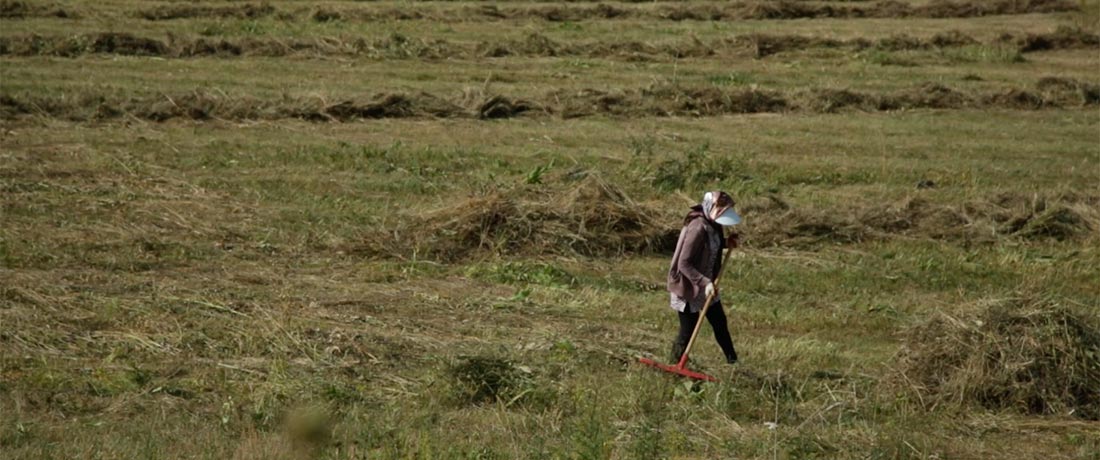
A village where women, children and elderly reside. Men leave 9 months of the year to Russia to work. Summer, a slow and friendly atmosphere; women do the hay, cut the grass and store for the winter. Fruits will be canned to be eaten during the cold winter. The sun arouses a certain laziness, a sensual relaxation. Autumn, with it’s different shades of red, is the season of birth and potato harvest. Women and men find intimacy in the coldness of winter, hence women give birth in October and November. Fathers meet their children in December. Preparations start now to welcome men, waiting is long and tiring. Winter is near, a form of suspense sets in: whose husband will come first? The men arrive with the snow. The women are shy, they need time to exist in the presence of men. The children are happy to be close to their fathers. Spring sets in, the atmosphere becomes tensed. Men depart for the land of tsars. Women are weak and sad, but they need to find strength to take care of the children.

Tamara Stepanyan was born in Armenia. During the breakdown of the Soviet Union in the early 90’s, she moved to Lebanon. After studying and working in Lebanon, Tamara pursued her studies at The National Film School of Denmark under the supervision of Arne Bro. “Embers” is the first feature documentary of Tamara that has won the Best Documentary Award at Busan International Film Festival in South Korea.
For 11 years now, she has been working and living in France where she has already made two feature documentaries “Those from the Shore” and “Village of Women”. Her films have won prestigious awards around the world, Best Documentary at Busan International Film Festival, Best Director at Boston, Best Film at Amiens in France, and some more. Right now she is in preparation for two new films.
Stepanyan made a number of films that were shown and primed in prestigious festivals like Locarno, Busan, La Rochelle, Boston, Leipzig, Amiens.
Stepanyan teaches film at 2 high schools in Paris.
